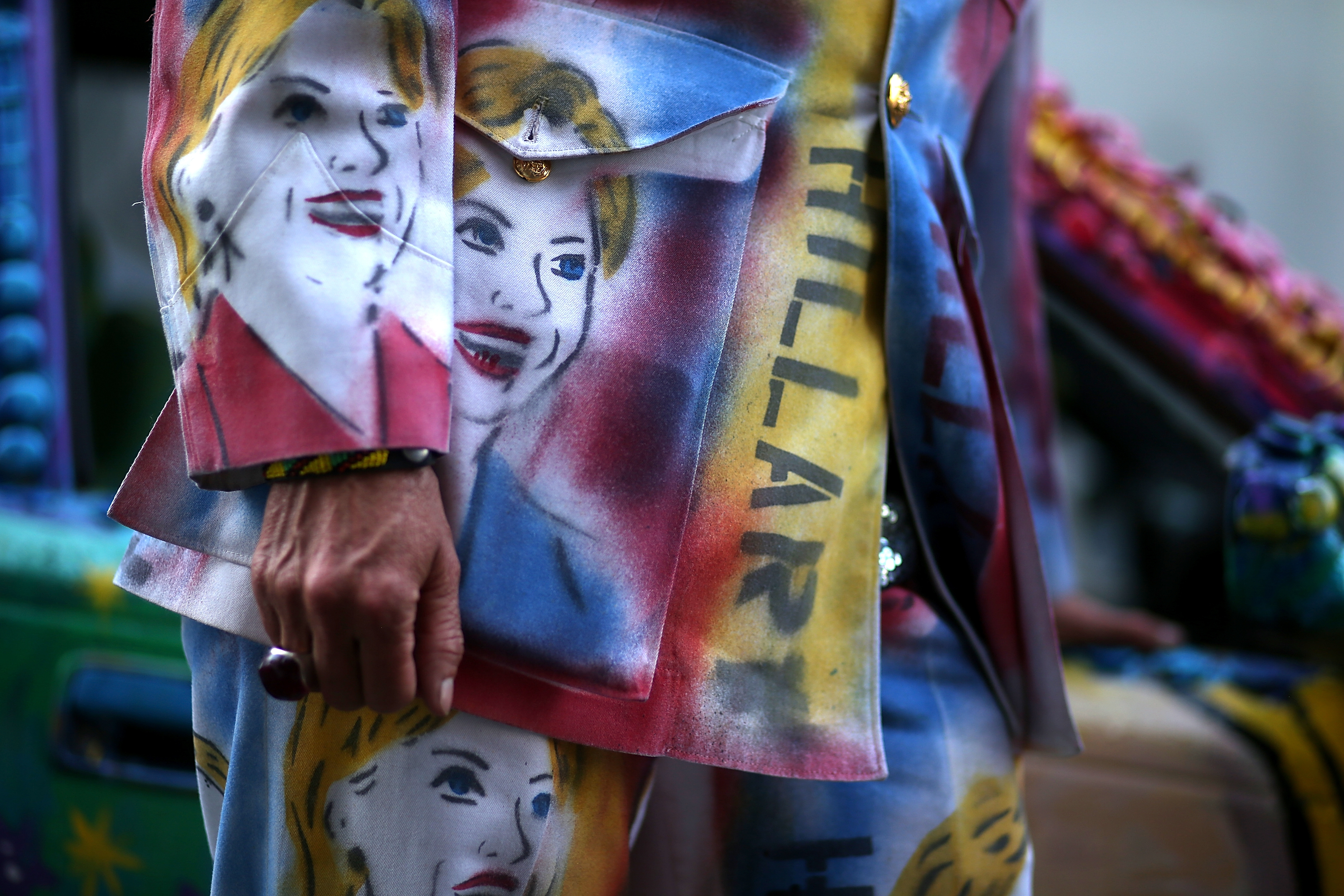
During the 2016 presidential campaign, the overwhelming majority of America’s cultural icons threw their support behind the same candidate. Beyoncé, Steven Spielberg, Mikhail Baryshnikov, Annie Leibovitz, Stephen King, Frank Gehry, Calvin Klein, Lena Dunham, and Rihanna were all among the numerous actors, writers, and musicians who backed Hillary Clinton, while the creative luminaries in Donald Trump’s corner reached a zenith with Hulk Hogan, Tila Tequila, Kid Rock, and one of the guys from Duck Dynasty.
This led a group of psychologists at England’s University of Plymouth and Canada’s Ryerson University to wonder: “Is creativity linked to political party affiliation?” That’s the question they set out to answer in a study published last month in the Creativity Research Journal.
Past research has shown that people who express fondness for former Ku Klux Klan leader David Duke tend to prefer simple polygons, which are associated with lower creativity, than non-white supremacists, who are attracted to more complex shapes. In that study, from 1992, creativity was measured by one’s openness and preference for complexity, which was positively correlated to a distaste for authoritarian attitudes (which are presumably more simplistic). But it did not consider the role that having a creative personality—and the greater social risk-taking habits often associated with it—might play in shaping one’s political beliefs.
To understand this further, the authors of the new study asked 406 participants in the US the week after the 2016 election whether they agreed or disagreed with two statements: first, that we must “smash the perversions eating away at our moral and traditional beliefs” to preserve the country, and, second, that “everyone should have their own lifestyle, religious beliefs, and sexual preferences.”
Screenwriter and actress Lena Dunham speaks to a crowd at a Hillary Clinton campaign office in 2016. Photo by Scott Eisen/Getty Images.
They compared the participants’ answers, which measured whether they embrace or reject right-wing authoritarian views, to several other assessments, including how much one self-identifies as being creative, how often they generate new ideas, their risk-taking behavior, their attitudes about egalitarianism, and their party affiliation.
The study’s results confirmed what the elections showed anecdotally: Participants that had creative personalities were more likely to be Democrats, while those with less creative personalities were more likely to be Republicans.
Specifically, the study found that the more comfort people have in taking social risks, the more likely they are to have creative personalities and espouse liberal beliefs, “possibly because most creative endeavors require willingness to risk one’s status when creating and presenting ideas or products for consideration by others,” the authors say. On the other hand, those who are averse to taking social risks are more likely associated “with a compliance with authority figures and traditionalism.”
The authors cite some outside research supporting their claim as well, such as a 2016 experiment that found that counties that voted Republican that year also tend to issue fewer patents, suggesting that they are areas where less creative innovation takes place.
The proposed theoretical model tested in the Creativity Research Journal study looking at the effects of creative personality on party affiliation through social risk-taking and sociopolitical attitudes.
“[T]hese findings might explain the relatively conservative attitude of Republicans toward the arts and the creative community (compared to the Democrats), such as frequent opposition to arts funding in budget negotiations,” the authors write in the new paper, titled “The ‘Right’ Side of Creativity: Creative Personality and Social Risk-Taking Predict Political Party Affiliation.”
The researchers go further to postulate that social risk-taking is not only good for creativity, but could also be a necessary pillar of democracy. “A society without social risk-taking has no way to test its norms, there is no feedback, and such a system can easily reach extremes,” they write. “A system with feedback is one that can self-regulate.”